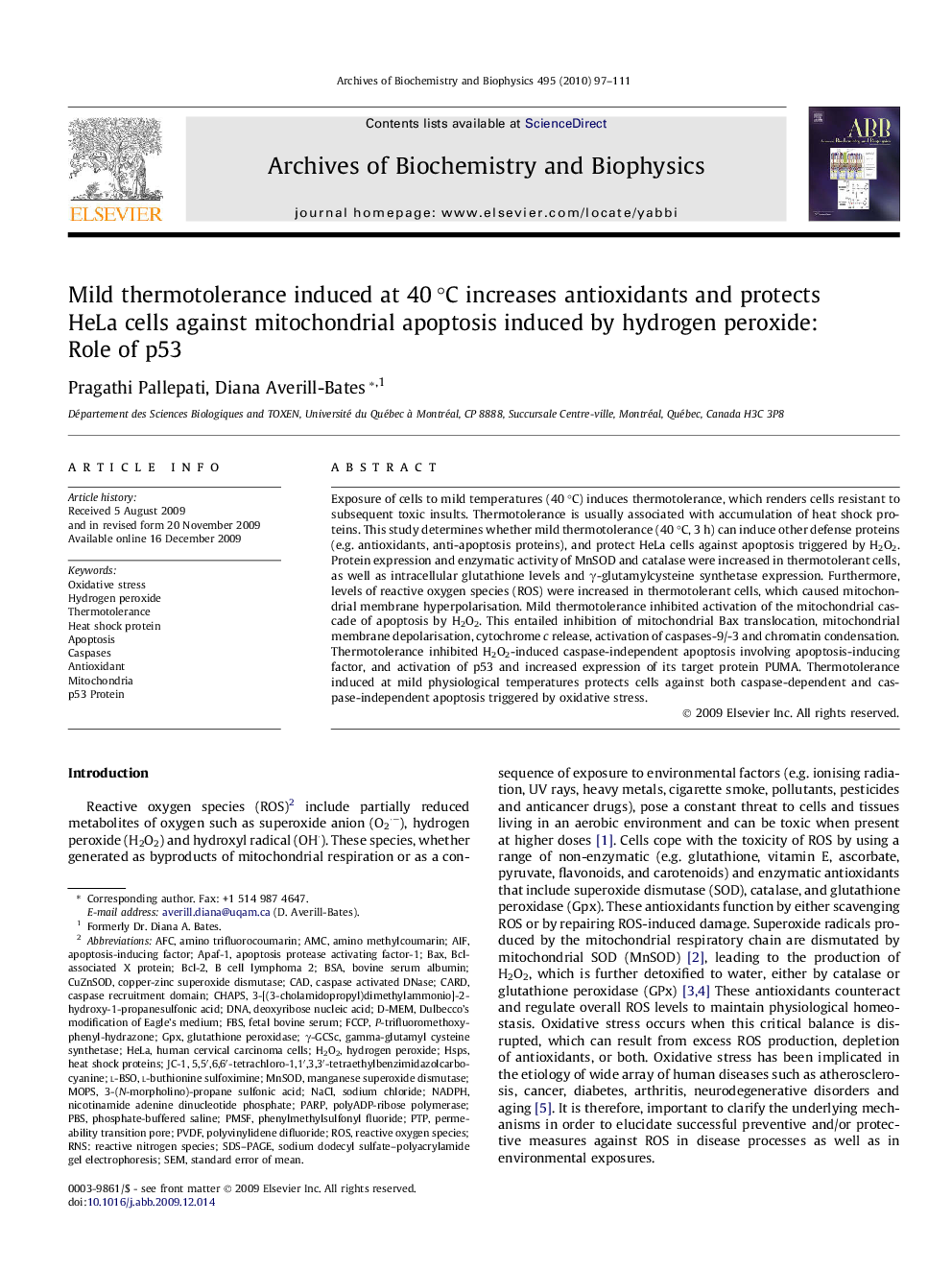| Article ID | Journal | Published Year | Pages | File Type |
|---|---|---|---|---|
| 1926126 | Archives of Biochemistry and Biophysics | 2010 | 15 Pages |
Exposure of cells to mild temperatures (40 °C) induces thermotolerance, which renders cells resistant to subsequent toxic insults. Thermotolerance is usually associated with accumulation of heat shock proteins. This study determines whether mild thermotolerance (40 °C, 3 h) can induce other defense proteins (e.g. antioxidants, anti-apoptosis proteins), and protect HeLa cells against apoptosis triggered by H2O2. Protein expression and enzymatic activity of MnSOD and catalase were increased in thermotolerant cells, as well as intracellular glutathione levels and γ-glutamylcysteine synthetase expression. Furthermore, levels of reactive oxygen species (ROS) were increased in thermotolerant cells, which caused mitochondrial membrane hyperpolarisation. Mild thermotolerance inhibited activation of the mitochondrial cascade of apoptosis by H2O2. This entailed inhibition of mitochondrial Bax translocation, mitochondrial membrane depolarisation, cytochrome c release, activation of caspases-9/-3 and chromatin condensation. Thermotolerance inhibited H2O2-induced caspase-independent apoptosis involving apoptosis-inducing factor, and activation of p53 and increased expression of its target protein PUMA. Thermotolerance induced at mild physiological temperatures protects cells against both caspase-dependent and caspase-independent apoptosis triggered by oxidative stress.
